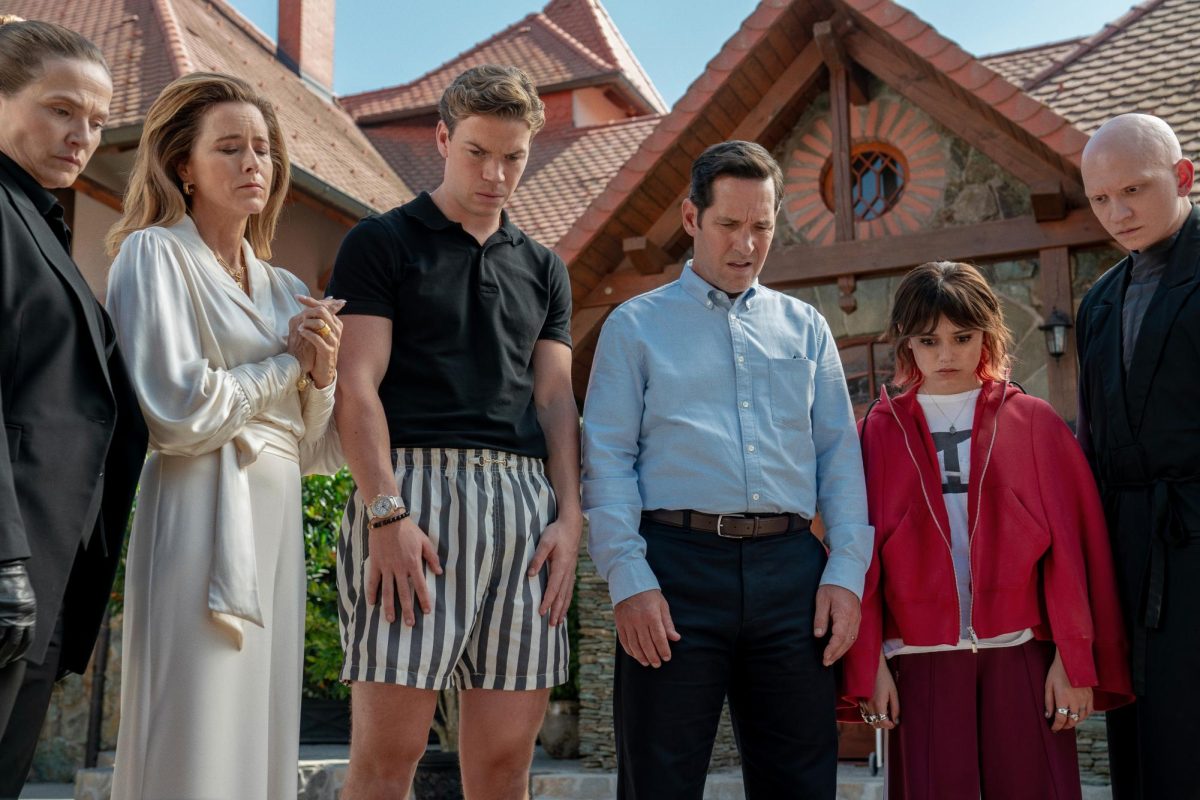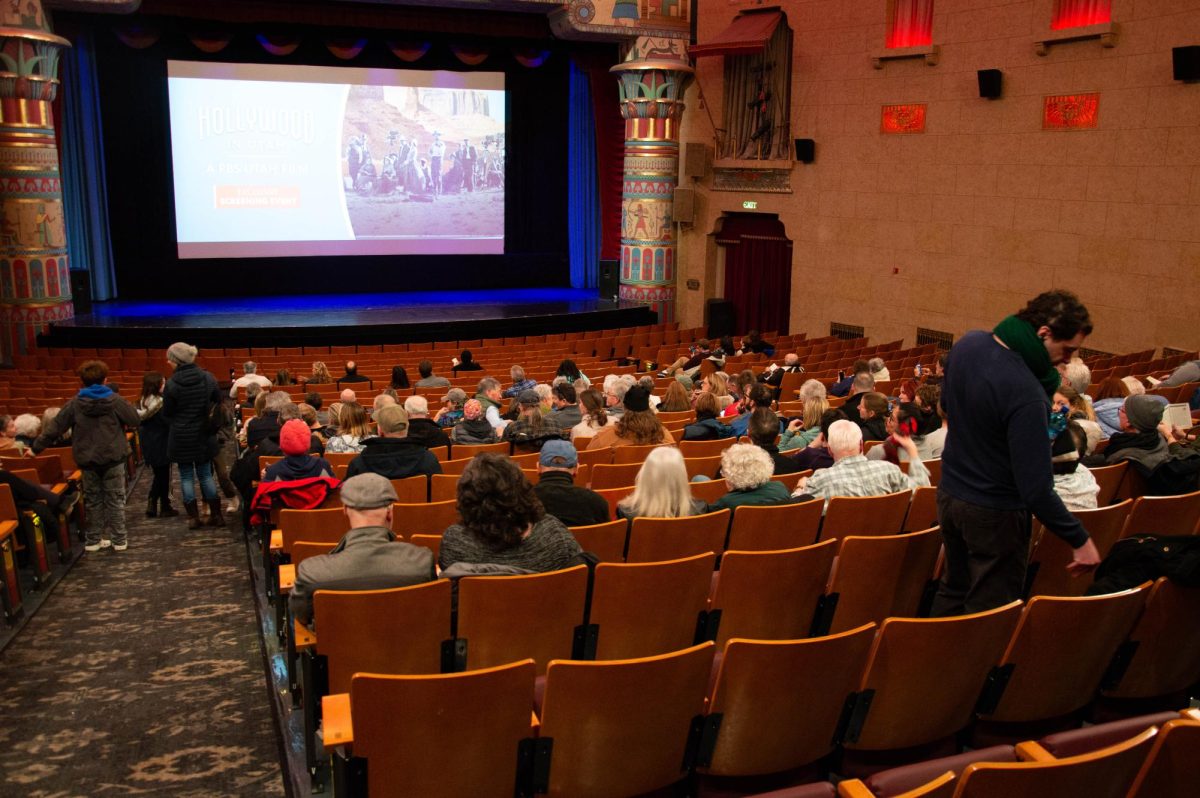“There is nothing on earth that we share. It is either Valjean or Javert.”
While Russell Crowe might have been among the less-talented singers in the recent film adaptation of “Les Miserables,” this is one of the lines that has tended to stick in my head the most after seeing the movie. It might just be a memorable line, given that it culminates in Javert’s suicide, but, the more I thought about it, the more I found it strangely applicable to the “us-vs.-them” mentality of politics today.
I know this mentality has always been prevalent, but Facebook is the lens through which our generation tends to witness it. With current events increasing the relevance of the gun debate and various equal-rights issues, it seems many people on Facebook can post about nothing else. I would welcome this if they were posting in such a way that encouraged open discussion and fostered more understanding between those of differing stances, but very, very rarely is that the case. More often than not, their politically charged links and memes seem calculated either to make their friends of different political viewpoints have epiphanies as to the error of their ways or to generate lots of likes and LOLs from those who already agree with them.
The only reason I haven’t made all these posts invisible to my feed yet is I hold out the (rapidly dying) hope that someone will introduce a dissenting voice to the conversation. I long for the day when one of their friends — maybe even someone who does agree with their general point — will play devil’s advocate and offer a balanced view of the other side of the story.
“Maybe,” they will suggest, “liberals aren’t just being stupid, obnoxious whiners, and conservatives aren’t just hateful, backward bigots. Maybe they have a meaningful voice to offer to the conversation. Maybe the objectively right thing to do is somewhere in the middle that we can only find with respectful, open-minded discussion and recognition of our ultimate common goals. Maybe there is no objectively right thing to do in this situation, and we just have to accept that their reality is as valid as ours. Have you actually talked to one of these people you hate so much — in PERSON — about why they believe what they do? Did you actually try to understand their view without clamoring to judge or sneer at it?”
But mostly people just ignore the baiting posts, which I can’t complain about, because that’s exactly what I do.
I have to wonder, though, how people come to believe they truly have all the answers, that there is no right way to think about an issue besides theirs, that they have it all figured out and everyone else is just an idiot who hates democracy. I’m genuinely curious here: What led you to know you are absolutely, objectively, unconditionally right, with no room for any other viewpoint? Have you traveled to every city in the world and extensively studied people of all cultures and perspectives until you can say with certainty that you’ve identified the ultimate best way to look at life? Have you read every book, website and online comment, and graduated in every area of study until you can safely say there is nothing you don’t know, no perspective you have not considered?
My theory: it’s the exact opposite. You only come to believe you have all the answers when you have had little education, explored little to no other perspectives, and interact with a very limited circle, most of whom share your culture/background.
This is where we come back to Valjean and Javert, because “Les Miserables” can be applied to every issue ever. Valjean comes out of jail with nothing but contempt for his fellow man, a certainty that everyone is against him, but a life-changing brush with a nonjudgmental priest makes him the most accepting, altruistic person you’d ever want to meet. Even when he’s given the chance to take his revenge on Javert, the inspector who’s never let him forget that he stole a measly loaf of bread (I hope that dang bread got a hefty paycheck for that movie, because it played a bigger role in the story than half the characters) and has hounded him relentlessly for decades, he acknowledges that Javert was only doing his duty and is not a terrible person just because his deeply held views happen to be at odds with Valjean’s best interests.
Javert doesn’t know what to do with this; he has always lived in a reality wherein there is only black and white, where one who does not subscribe to his view of morality is irrevocably “fallen from God, fallen from grace.” He literally cannot deal with the concept of moral ambiguity in his world, does not know how to concede his single-minded pursuit might not have been the only possible course of action in that situation. He is so uncomfortable with that concept, in fact, that he must “escape now from that world, from the world of Valjean.”
I get it, Javert. Living in a world where there is, arguably, no empirical way to ever be “right,” to ever be the one on the indisputable moral high road because there are so many conflicting, equally valid perspectives, is tough. But maybe the rest of us can escape from being driven mad by that fact if we not only accept, but come to absolutely love the fact that, thank goodness, we live in a world where moral ambiguity exists. So, my friends — let’s all be Valjeans, not Javerts.



















